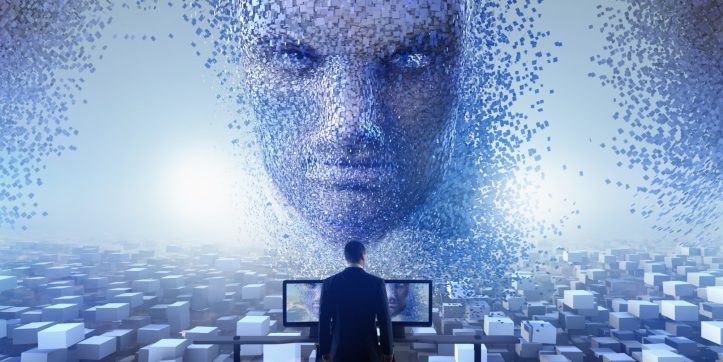What is Super-AI? I have often heard this question, and it appears that the answer may be sooner than we think. Recently, at a think tank in Washington DC, an interesting panel discussion took place between two futurists, one a roboticist, and one who work on artificial intelligence and computer science. The topic of Super-AI was also taken up at another think tank in Europe, during a recent workshop.
There seems to be a misunderstanding between these two sides of the argument, which must be cleared up. First of all, what is Super-AI anyway? Is it a new way of achieving human brain emulating super-intelligence, or is it simply a re-engineering of our mental processes to be able to achieve superior results? In other words, is the development of artificially intelligent robotic android’s a way of achieving super-intelligent machines with human brain emulating intelligence?

Well, let me start by saying, that I am in no way in favor of developing Super AI. It is far too close to evil, to be honest. But, let’s not talk about that now, as we need to bring up the topic of artificially intelligent robotic androids, and their relationship with humanity. We already know that humans will not have a free will for long if they continue to work in factories, or whatever labor-intensive task they are assigned to do in the future. Therefore, if we can teach computers to have free will, why can’t we teach humans to have free will as well?
Therefore, let’s take a closer look at the issue of artificially intelligent machines with human intelligence to replace people in various labor intensive tasks. But, I don’t see there being a problem here, or an ethical dilemma. In fact, I think it is rather advantageous to the future, as it will help improve efficiency, accuracy, longevity, productivity, etc., of all businesses, which are based on efficiency, accuracy, longevity, productivity, etc. In fact, I would go as far as to say that it is imperative to the very survival and continued existence of human civilization in its present state of existence. So, this is good news, and this is good engineering. We should embrace the idea of super-intelligence, and I believe that we should use this term in the same philosophical way, as we do the term ‘artificial intelligence.’
In fact, I believe that the philosophy of AI is closely related to that of computer science, as both are related to the engineering of intelligence. The field of AI has recently blossomed into a multi-million dollar industry, and many well-known entrepreneurs and industrialists have invested in it. Some of the most famous ones are: Ray Kurzweil, John Grace, Nick Clegg, and Albert Einstein’s son, Isaac Einstein. These entrepreneurs and industrialists see the potential of the field of artificial intelligence to vastly improve our daily lives and make our world a better place in every way.
Super AI is computer software that performs tasks that were once the domain of human intelligence. For example, computers have been programmed to beat the games; beat the human chess champion;, and even beat the best human stockbroker at their own game. Now you might think that this is not possible or even very hard to do. I would disagree and explain that software engineers have recently been able to accomplish these feats using a simple AI system, the so called ‘Genetic Algorithms’. Once the programmers who designed these AI systems understood the relationship between code and human genes, and how they can be manipulated by means of specific programming code, they were able to write highly complex programs which can think, decide, and perform tasks, just like a real person would. In fact, once these intelligent programs were programmed by people, they began to learn from their experiences, and before long they started to duplicate themselves, like a machine.
The developers of these AI systems are now in the process of trying to achieve the status of a self-aware intelligent entity. This is not a goal that is far away from realization, as recent developments in AI technology have made it possible to design AI machines that will be able to think, reason, and interact with humans as if they were good friends. These machines will be able to mimic our emotions and feelings, and they will understand what we are saying and doing. However, these machines will not be able to copy us and pass us information without our permission. Although, they can provide us with services such as providing search engine results to people that are searching online, translation services, and other things that can enhance our lives in some way.
Some believe that the first artificially intelligent systems with this level of self-awareness will be used by businesses to give customers the option of having certain information given to them that they may not choose to have on their own. For example, they may provide information about the weather, or traffic reports. However, eventually self-awareness will lead to the creation of general AI software, which will be able to perform every task that a human could do, as well as have artificial intelligence comparable to that of humans.